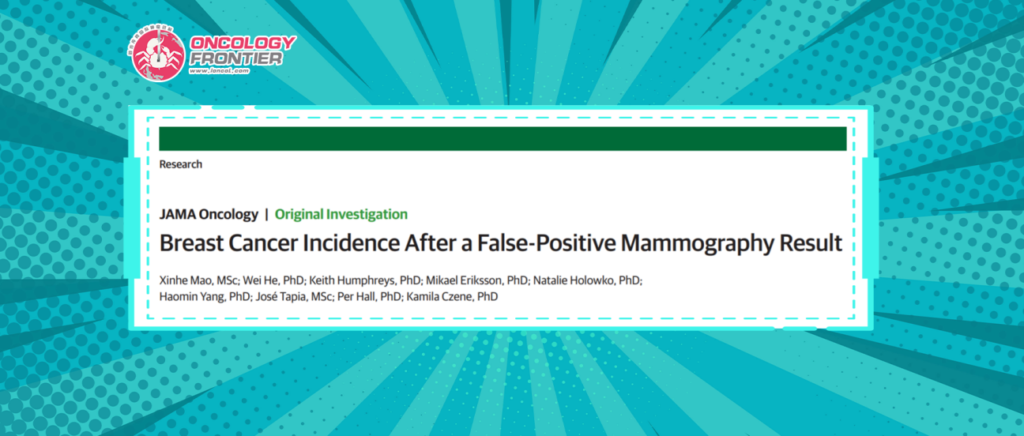
Mammography is the only imaging method proven to detect breast cancer early and reduce patient mortality; however, traditional mammography often yields false-positive results, and the long-term outcomes of these false positives remain unclear. Recently, a Swedish study involving 497,343 women found that the risk of breast cancer following a false-positive mammogram varies based on personal characteristics and follow-up. These findings underscore the importance of long-term follow-up awareness for women with false-positive mammograms and help tailor personalized screening strategies based on false-positive results.This study provides an in-depth analysis of the long-term impact of false-positive mammogram results on breast cancer risk. Despite the significant reduction in breast cancer mortality achieved through mammography screening, it can also lead to psychological distress and anxiety and increase breast cancer risk during follow-up. The cohort, comprising 497,343 women from the Stockholm region, showed that women with false-positive results had a higher 20-year cumulative incidence of breast cancer compared to those without false positives. This increased risk is associated with age, breast density, and other individual characteristics.
Specifically, women aged 60 to 75 and those with lower breast density had a higher risk of breast cancer following a false-positive result. Moreover, the risk of ipsilateral breast cancer was highest within the first four years of follow-up for women with false positives, and the risk of contralateral breast cancer also increased. The study also found that women with false-positive results had a lower attendance rate at subsequent screenings and an increased risk of breast cancer mortality.
The study’s conclusions highlight the importance of personalized monitoring for women with false-positive results, particularly during the next two screening rounds. Increasing awareness of the long-term breast cancer risk among these women is crucial to reducing incidence and mortality. The study also suggests that as women age, extended screening for those with false-positive results may need to be considered.


